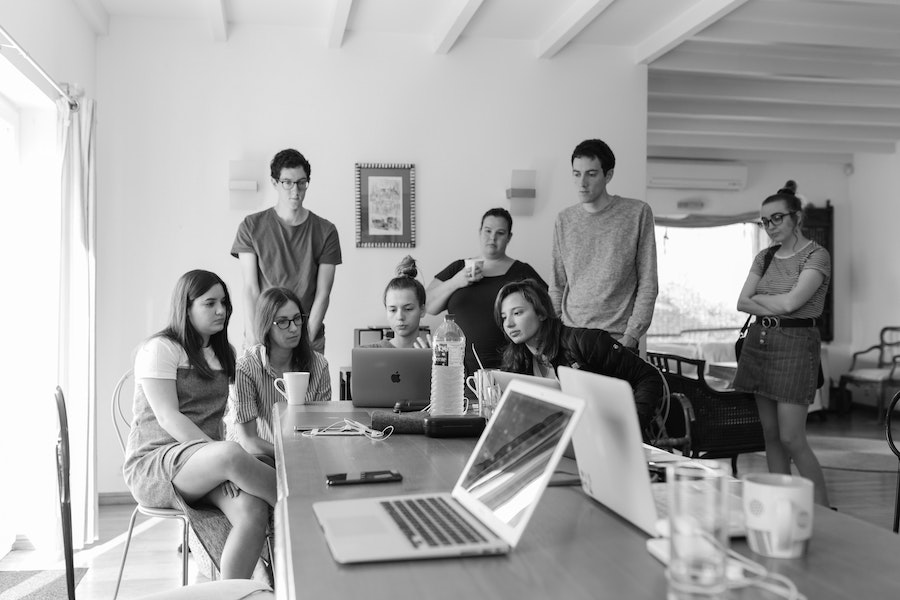Originally published October 2020.
For those about to emerge from university and enter the world of property, a few words of advice.
As we enter 2020, I find myself engrossed in the new Star Trek series, ‘Picard’. Its central theme, set against a background of science fiction and interstellar space travel, is the perennial one of ageing and passing the baton to the next generation. And that has made me think about how in the world of real estate a new cohort of ‘bright young things’ are poised to take over the mantle from my own generation.
I have spent most of my working life in the university sector, hopefully imparting a little of my property knowledge to the chartered surveyors of tomorrow. In 2018, I wrote an article in this very magazine about how universities can best support the students of today when they are seeking their first step on the career ladder. I am lucky that I have always taught at universities with strong links to industry; links that I have helped to foster with the development and support of alumni societies and HR teams across the profession.
In property, networking is the linchpin of the work environment and it is just the same when a student is building up their own CV. I am not talking about nepotism, which died in the industry, thankfully, back in the early 1990s. I am talking about a student, during and prior to their studies, developing their work experience profile with placements and internships or just talking with as many people from the property industry as possible. There is no such thing as a wasted conversation.
Asking questions of your contacts in the industry will give you a greater understanding of the real estate profession and make you more
insightful in your answers at interview
While there are still a few millennials coming to property later in their lives, the majority of the new intake are Generation Z. Sadly, this age group are often characterised as being unaware and apathetic with oversensitive emotions that make them prone to ‘snowflaking’. But that has not been my experience, either when I was a full-time professor or now. Giving a guest lecture at UCL recently, I was so encouraged by the enthusiasm and attentiveness of the students – and even more so by their insightfulness and erudition. Yes, they may look at life differently from my own worldview and, indeed, from the views of the Generations X and Y, but they are as bright and able as any generation. They just need to be encouraged and pointed in the right direction to the right job, the right mentor and the right aspiration.
So now I am talking directly to those of you out there seeking jobs in real estate. The commentary about generations is still important to you, as your success in securing a job will depend upon the decisions of people older than yourself who value your traits differently. You therefore need to put yourself across in ‘their language’, working hard to present yourself in the best light both on paper (your CV) and in person (interviews).
The first thing to do is to seek help in doing that. All universities have career teams that can help you with generic advice on your CV and interview technique. But, possibly more importantly, do speak to the staff within your department who actually know about the real estate industry. I used to spend hours tweaking the CVs of my students so that they dovetailed into the requirements of chartered surveying companies.
Link your skills gained into where and when you developed those skills, whether in education or in previous holiday employment. Don’t include a photo or a personal profile. The former is unnecessary; the potential employer is judging you on your skills and knowledge, not on how you look. The latter is a complete waste of space, as anyone can claim that they are enthusiastic and wonderful – instead, you need to demonstrate why you are those things. Be careful with the skills that you say you have. Don’t say you are proficient at Word and then send your CV as a Word document with numerous formatting errors. Likewise, check your spelling and grammar, including the use of apostrophes. It takes time to get your CV right, but it is time well invested as it can be your foot in the door to get you that interview.
Be up-to-date on property markets; know rents and yields and residential capital values
for London, for your university town
and for your home town
As noted above, networking is so important. Asking questions of your contacts in the industry will give you a greater understanding of the real estate profession and make you more insightful in your answers at interview. Likewise, good contacts can point you in the right direction for work experience and internships. The good universities will help you in this, with strong and active alumni societies, mentoring schemes and good contacts with industry in general. Some universities, sadly, don’t offer such support and you will need to pick up the phone and do the legwork yourself. Either way, talk to anyone and everyone. It really does help.
Once you get your foot in the door, you need to do everything you can to secure the job. Again, career teams at university can help with mock interviews so you feel less anxious about the real thing. But the real trick is to prepare, prepare, prepare. Be up-to-date on property markets; know rents and yields and residential capital values for London, for your university town and for your home town. Know what is important to property people at the moment. Know what is happening in the news, and have a considered opinion on everything. You don’t have to agree with the interviewer, but you should be able to defend your viewpoint with facts and discernment. And lastly, be you. An interview is a two-way process, so ask them lots of questions. You want to feel happy where you work, so find out if that company is the right company for you.
Regardless of the alphabetical assignment of your generation, remember that you are the next generation. You will have a wonderful life working in real estate, no matter what aspect of that industry you choose, so spend the time now to prepare yourself to get that job. You won’t regret it.








